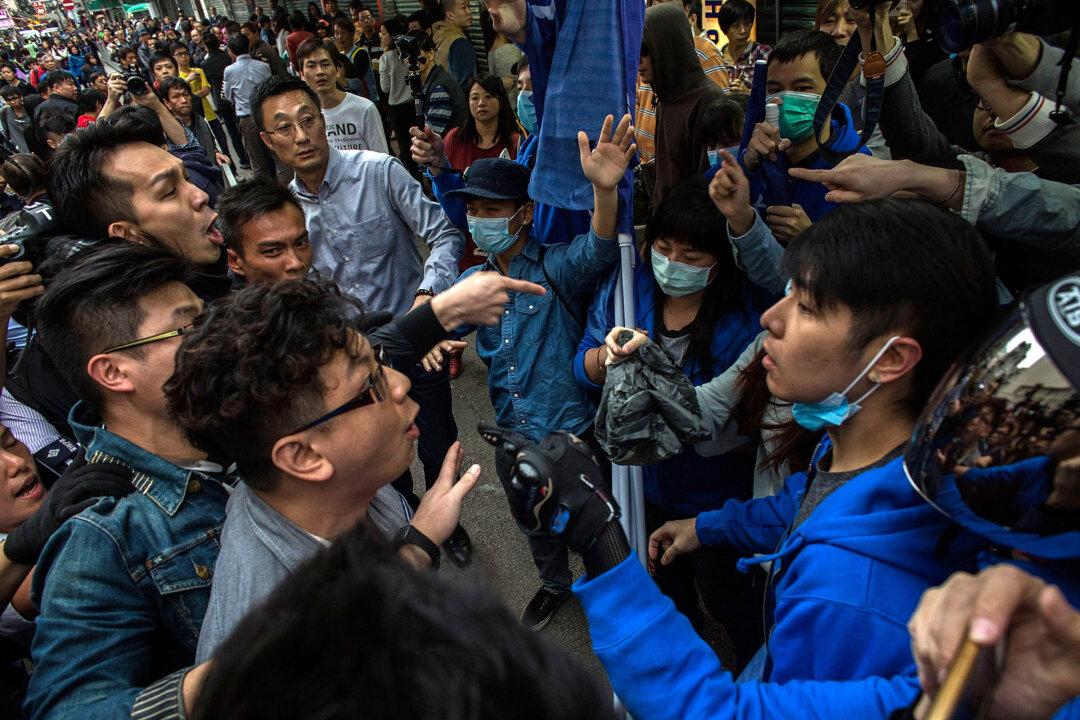HONG KONG—There are better ways to spend a Sunday in Hong Kong than standing on cramped sidewalks, shouting at shoppers dragging suitcases, and dodging police pepper spray and handcuffs.
But since early February, hundreds of Hongkongers have been doing just that, with weekly demonstrations against so-called parallel traders, the throngs of mainland Chinese from just across the border who travel in and out of Hong Kong to scoop up milk powder, diapers, cosmetics, and electronics for resale in the mainland.
“Hong Kong people are venting their anger,” said Kel, one of the protesters, during a police-approved rally in the border town of Yuen Long in March. “We are pressuring the government to fix the issue.” The influx of Chinese traders has changed the makeup of retail spaces in Hong Kong’s border districts, and residents complain that it’s affecting their daily lives.
Frustrated at both the local and Chinese authorities’ lack of interest in the issue, locals are forming so-called nativist protest groups, aimed at “protecting” the way of life they’re used to, by heckling mainland traders and blocking off their favorite stores.
The protesters’ message and methods have drawn a police backlash, and inspired worried debate among their natural allies, Hong Kong’s more mainstream pro-democracy groups.
Fake Pharma
Stroll through Hong Kong’s border towns—Sheung Shui, Yuen Long, and Tuen Mun in particular—and the signs of parallel trading are hard to miss.
More than 50 pharmacies—literally one every fourth shop—are found along rows of cramped shophouses near main and side streets. These “pharmacies” don’t actually sell pharmaceuticals, though. Instead, cans of infant formula and boxes of chocolates are stacked high near entrances. One “pharmacy” on Sau Fu Street in Yuen Long simply calls itself “Milk Powder Wholesale City.”




